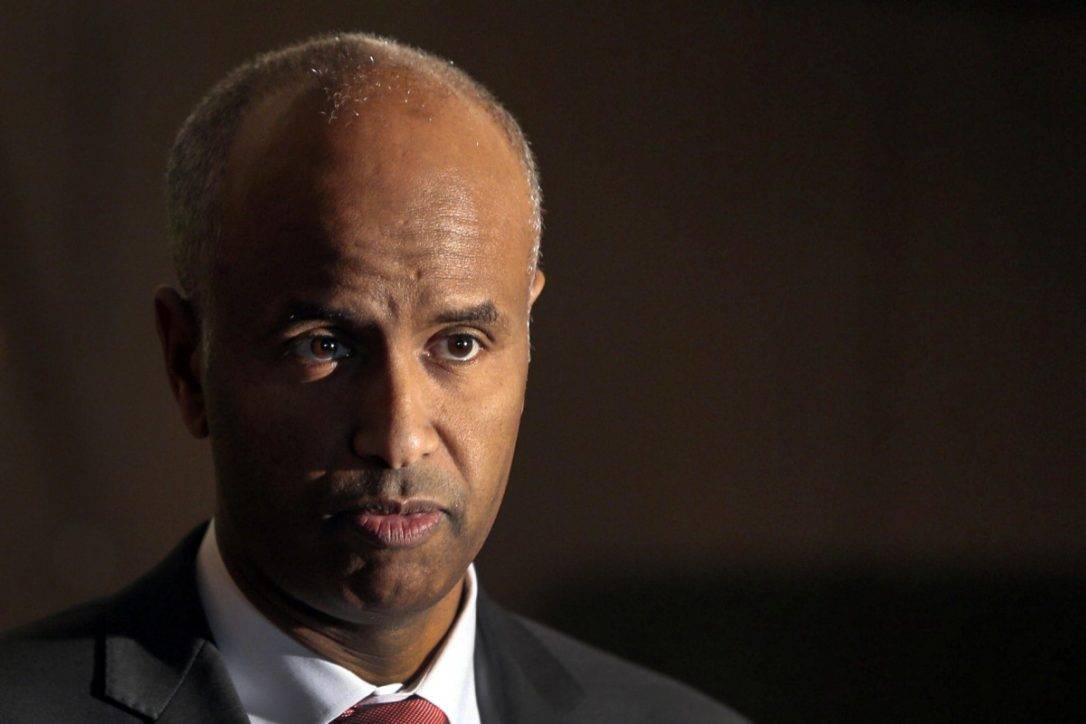
More Caregivers in Canada to Receive Permanent Residency Soon
Immigration Minister Ahmed Hussen said Sunday his department will process 80 per cent of backlogged permanent resident applications by the end of next year. But critics say Ottawa still isn’t doing enough to protect caregivers and prevent their families from being separated.
Saying the government is committed “first and foremost” to family reunification, Liberal Immigration Minister Ahmed Hussen announced Sunday that his department will process 80 per cent of the backlogged permanent resident applications from those who came to Canada through the former Live-in Caregiver Program by the end of next year.
“While many live-in caregiver applicants have faced long delays and family separation, they can rest assured that they will soon receive a positive decision on their application,” Hussen said at a news conference at Christina’s Panciteria, a Filipino restaurant in North York.
But caregiver advocates say the government is still not doing enough to address inherent inequalities in the program, which allows caregivers to apply for permanent residency after they have worked in Canada for two years.
Anna Malla, an organizer with the Caregivers’ Action Centre, said caregivers should be granted permanent residency upon arrival, like other classes of economic immigrants.
“If (the Liberals) were really committed to family reunification, they would be looking at some of these bigger issues,” Malla said, adding that granting caregivers permanent residency upon arrival is the only way to ensure they can assert their rights. “Care work is real work; it’s important work. Minister Hussen said it’s important work, so we want to see a commitment on that same note.”
Caregivers, who come to Canada primarily from the Philippines, Indonesia and the Caribbean, are barred from bringing their families with them while they take care of Canadian children, the elderly or people with disabilities. After two years they are eligible to apply for permanent residency, at which point their families can join them. But under the former Live-in Caregivers Program, which was overhauled in 2014, a massive backlog accumulated, creating wait times of several years before applications were processed. Approximately 30,000 caregivers are currently in the backlog.
On Sunday, Hussen mentioned the case of Jocelyn Godroy, whose story was featured in the Star this summer. Godroy, the mother of three children, spent seven years waiting for her application to be processed. She was finally granted permanent residency last month.
“Too many families have been apart for too long,” Hussen said. “And for this heart-wrenching story and many others, we are truly sorry and we hope to do much, much better.”
Hussen blamed the previous Conservative government’s “mismanagement” for the “unreasonable delays,” saying the Liberals inherited the backlog.
Under current rules, caregivers are no longer required to live in the home of their employer, and they are split into two different streams: caring for children and caring for people with “high medical needs.”
Hussen said in future, all caregiver applications will be processed within one year.
Michelle Villanueva hopes that’s true. She said she arrived in Canada from the Philippines in 2014 under the current program and applied for permanent residency in August 2016. Sixteen months later, she’s still waiting. She says she hasn’t seen her 8-year-old daughter in three years. “I’m very frustrated.”
While Sunday’s announcement focused on the immediate increase in permanent residency granted to caregivers, the Liberals are planning to dramatically reduce those numbers in the next three years.
This year, as a result of more efficient processing of applications, the government will grant permanent residency to 20,000 caregivers, the high end of their target for this specific class. But the target for caregivers drops to 17,000 in 2018, 14,000 in 2019 and just 5,000 in 2020.
“When they say ‘we’re getting rid of the backlog,’ they’re kind of closing up the pathway (to permanent residency),” Malla said.
Jenny Kwan, the NDP immigration critic who for several years lobbied the government to deal with the caregivers backlog, said Sunday’s announcement was “welcome news.”
But Kwan said the system remains fundamentally unfair.
“Other economic classes, they get to bring their families here right from the get-go,” she said. “They don’t have to be separated from their families. They don’t have to work for two years before they can even make an application.
“If you’re good enough to work here, aren’t you good enough to stay? … The minister has got to realize the pain and agony and hardships that caregivers have to go through being separated from their families.”
Source: thestar.com

